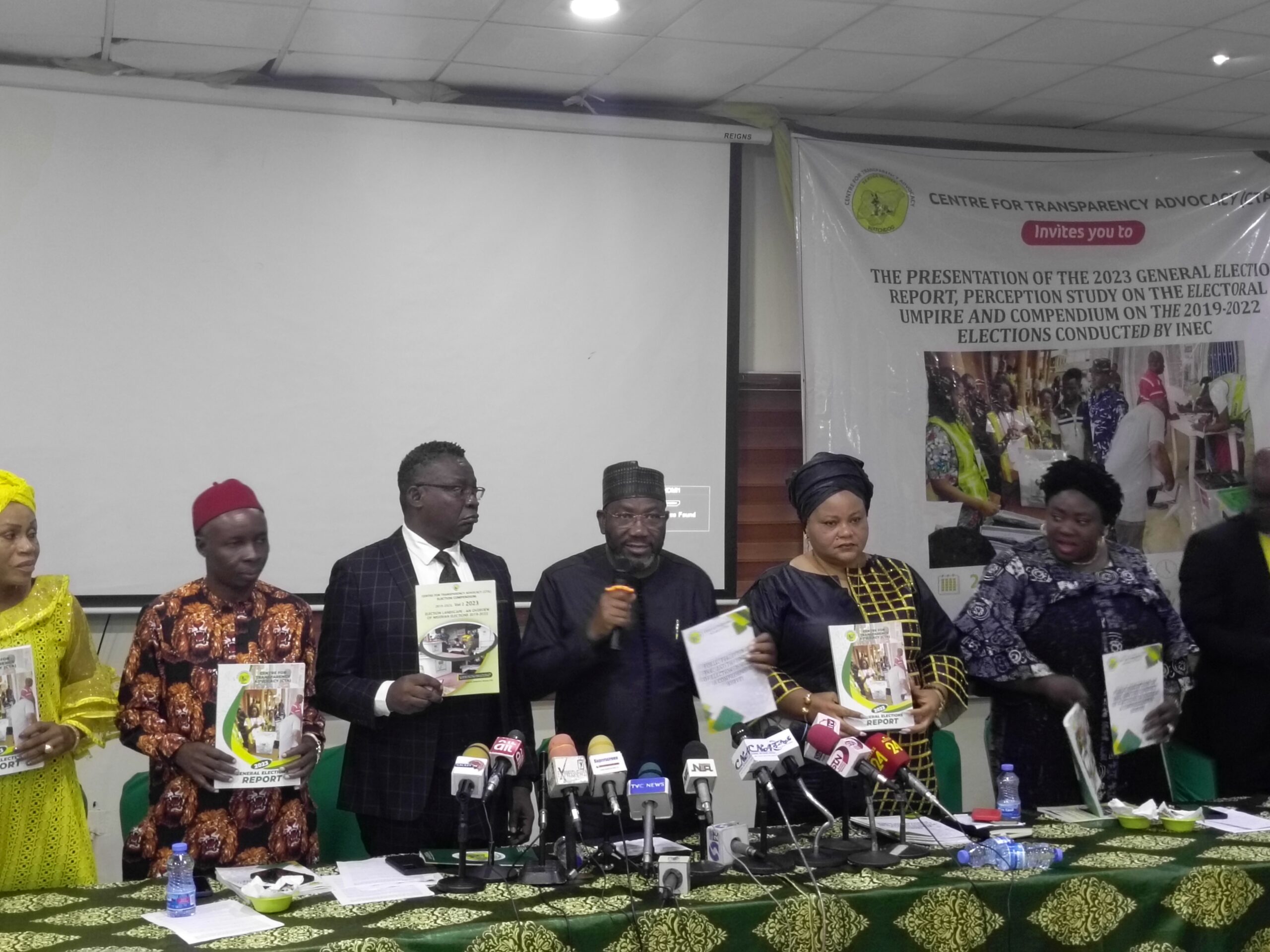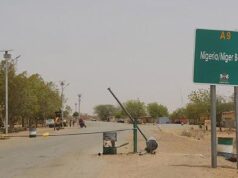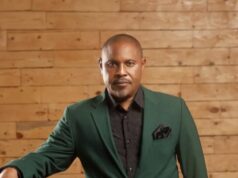By Abubakar Yunusa, Ojimaojo
In order to ensure credible future elections, the Center for Transparency Advocacy (CTA) has urged the Independent National Electoral Commission (INEC) to adopt essential technology and address challenges related to the uploading of election results.
The election observer group has also emphasized that the electoral commission should enhance the timely distribution of election materials, intensify voter education to counter misinformation, advocate for citizen participation in governance, and continue to promote peaceful political conduct during elections.
During the public presentation of CTA’s report on the 2023 election titled “Public Perception of INEC and the Conduct of Elections in Nigeria: A Comprehensive Survey,” an increased involvement of Civil Society Organizations (CSOs) in educating citizens during electoral processes in Nigeria was recommended. It was also suggested to strengthen the prosecution of election-related offenses and enhance voter education to address issues arising from lack of awareness and misinformation. Conducting focus group discussions (FGDs) in rural areas to gather diverse perceptions from the grassroots level was also suggested.
Other reports released to the public include the “2023 General Elections Observation Report” and a compendium of the 2019 general elections and off-season elections conducted by INEC up to 2022.
During his presentation, one of the speakers, Prof. Alex Asigbo, mentioned that citizens’ diverse perspectives reflect a combination of positive developments and concerns in the 2023 general elections.
Asigbo stated, “Recommendations point towards the need for enhanced voter education, improved material distribution, security cooperation, and media regulation. The elections demonstrated progress but also highlighted the importance of addressing areas for refinement in Nigeria’s electoral process.”
The report indicates that some stakeholders hold mixed opinions regarding the conduct of elections by the Independent National Electoral Commission (INEC), whether it has conducted free, fair, inclusive, and credible elections since the return of democracy in Nigeria.
The report also involved the conduct of a Focus Group Discussion (FGD) on citizens’ perception and understanding of INEC’s mandate and the conduct of the 2023 general elections.
“The project focused on selected states across the six geopolitical zones of the country, using two states per geopolitical zone along with the FCT, namely FCT, Kogi, and Plateau (North Central); Kaduna and Sokoto (North West); Taraba and Gombe (North East); Anambra and Enugu (South East); Osun and Oyo (South West); Delta and Edo (South-South). The objective was to evaluate citizens’ perception, including their understanding of the functions and mandates of INEC. This was achieved through in-depth discussions among participants representing various stakeholder groups across the country.
“The study was designed to bring together diverse respondents from various stakeholder groups, including CSOs, youths, observers, INEC adhoc staff, law enforcement officers, women representatives, religious leaders, and politicians, to a round table to discuss the performance of INEC during the general elections.”
In her welcome remarks,the Executive Director of CTA, Faith Nwadishi, mentioned that stakeholders have differing viewpoints on whether the Independent National Electoral Commission (INEC) has conducted free, fair, inclusive, and credible elections since Nigeria’s return to democracy. These viewpoints depend on where they stand, their understanding of INEC’s mandate, and the roles other stakeholders play in delivering the election.
According to her, it’s important to note that the electoral system in Nigeria has improved, despite ongoing challenges.
She said, “Voter education programs, regular consultations with civil society leaders, citizens, and stakeholders, media collaborations, and the use of technology to improve the efficiency and transparency of the voting process are all part of the improvement. Most significantly, the mix of political actors in the National Assembly gives a miniature representation of the cultural and ideological diversity in Nigeria.”




